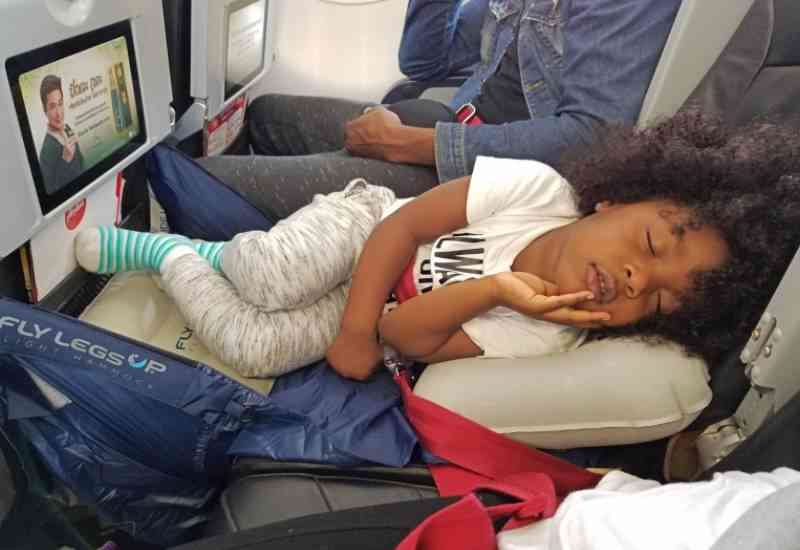
The best way to manage psychological distress will depend on your child's age, their personality and how you generally handle their distress moments before flying.
For many flyers, frequent or not, a trip with a screaming baby feels twice as long and the experience is one you long to come to an end.
While this can be distressing for you who is travelling alone, imagine what it feels like for the parent or parents of this child.
Not all children will pull off tantrums while flying and the same child may not pull off a tantrum every time. It is important, therefore, to understand your child's needs well and be adequately prepared for travelling.
Things that may cause a child to be stressed and unsettled include the usual discomfort tendencies of hunger, lethargy and even wet diapers.
Things particular to flying can include: the unfamiliar space that the child is encountering with all the strangers, the confined space that they are limited to while in the air, which can be quite distressing for long-haul flights and destruction in their day-to-day routine, which creates an element of anxiety in the child.
Quite different from the adult who can articulate the discomfort; for some children the best way they can express themselves is through crying, screaming or even temper tantrums.
As a parent, this can also create an element of anxiety, feeling overwhelmed and also getting distressed. However, it will be important to note that children can sense when we are calm.
- How can I help my kids build stronger social skills?
- Money talk at the dinner table: Teach children value
- How to prepare your toddler for a new sibling
- Teaching kids to choose the right company early
Keep Reading
The best way to manage psychological distress will depend on your child's age, their personality and how you generally handle their distress moments before flying. If possible, engage the child in what it would be like flying.
You can do this through conversations on aeroplanes or imaginary play including passport checks, luggage packing, onboard moments, entertainment and disembarking the flight. Allow the child to express themselves freely during this time.
This creates a space that helps them slide into the role much easier when the travel day arrives. You can even watch planes take off if possible.
On the day of travel, it will be important to have all your travel documents ready and in an easily accessible bag.
Feed the child before boarding if possible and ensure they are warm and dry. Allow your child to carry a toy. For children who love role-play, you could add some excitement by letting them know they are responsible for the safe travel of their toy. While onboard, and the seatbelt sign is off, feel free to take a short walk on the plane to reduce boredom.
Although it's quite common to find yourself concerned about what other passengers might be thinking of you when your child is in distress, remind yourself that adults get stressed out too only that, but they are able to verbalise their needs.
Yes, it can happen to anyone and you should not feel guilty about it. Learning distress tolerance skills may come in handy should the need arise during your journey. Remember to ask for assistance whenever you feel overwhelmed.
Do not use sedation as a means to prevent toddler distress as this can potentially harm your child.
Dr L N Nyamute is a Consultant Psychiatrist, Mental Health Advocate
 The Standard Group Plc is a multi-media organization with investments in media
platforms spanning newspaper print
operations, television, radio broadcasting, digital and online services. The
Standard Group is recognized as a
leading multi-media house in Kenya with a key influence in matters of national
and international interest.
The Standard Group Plc is a multi-media organization with investments in media
platforms spanning newspaper print
operations, television, radio broadcasting, digital and online services. The
Standard Group is recognized as a
leading multi-media house in Kenya with a key influence in matters of national
and international interest.


